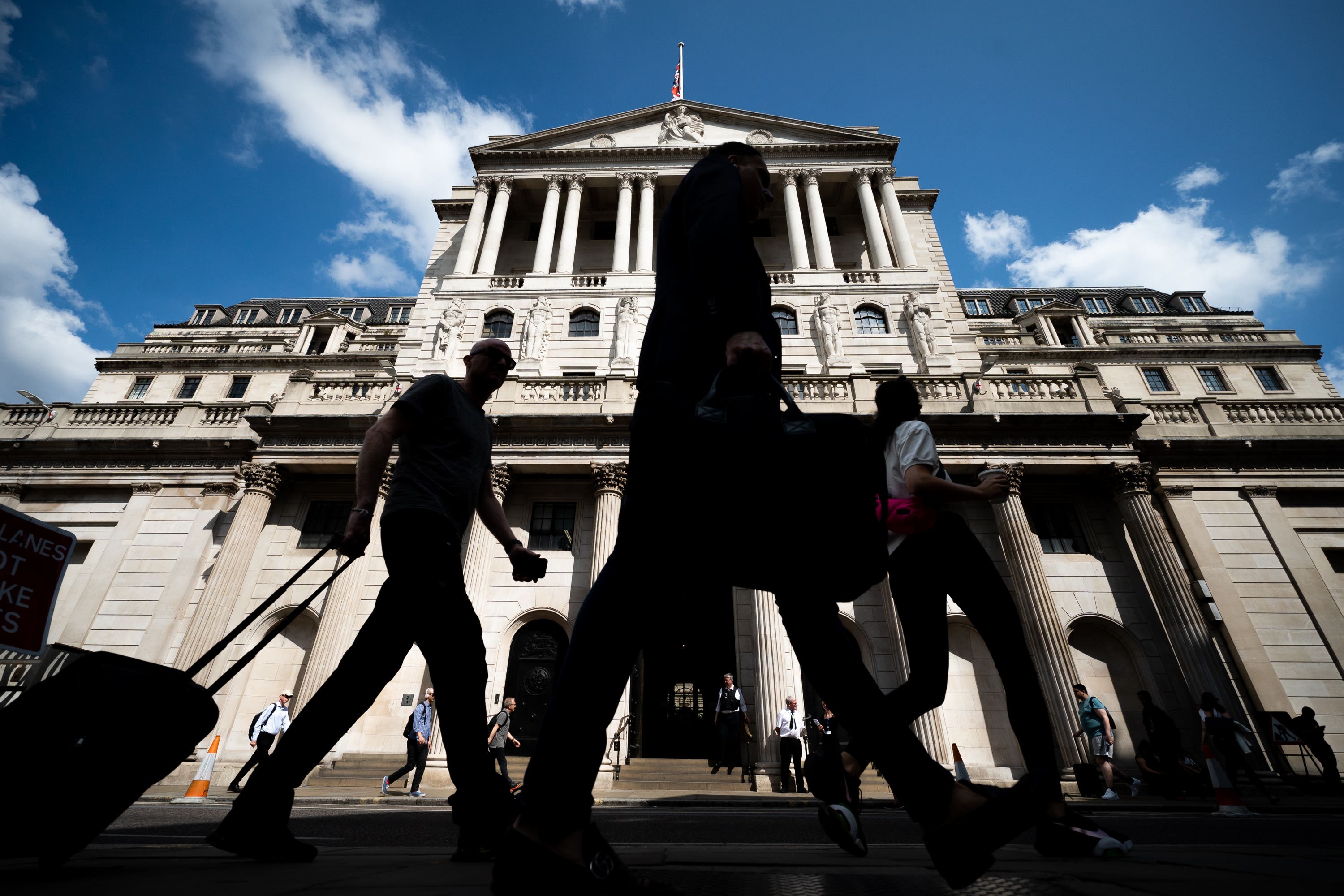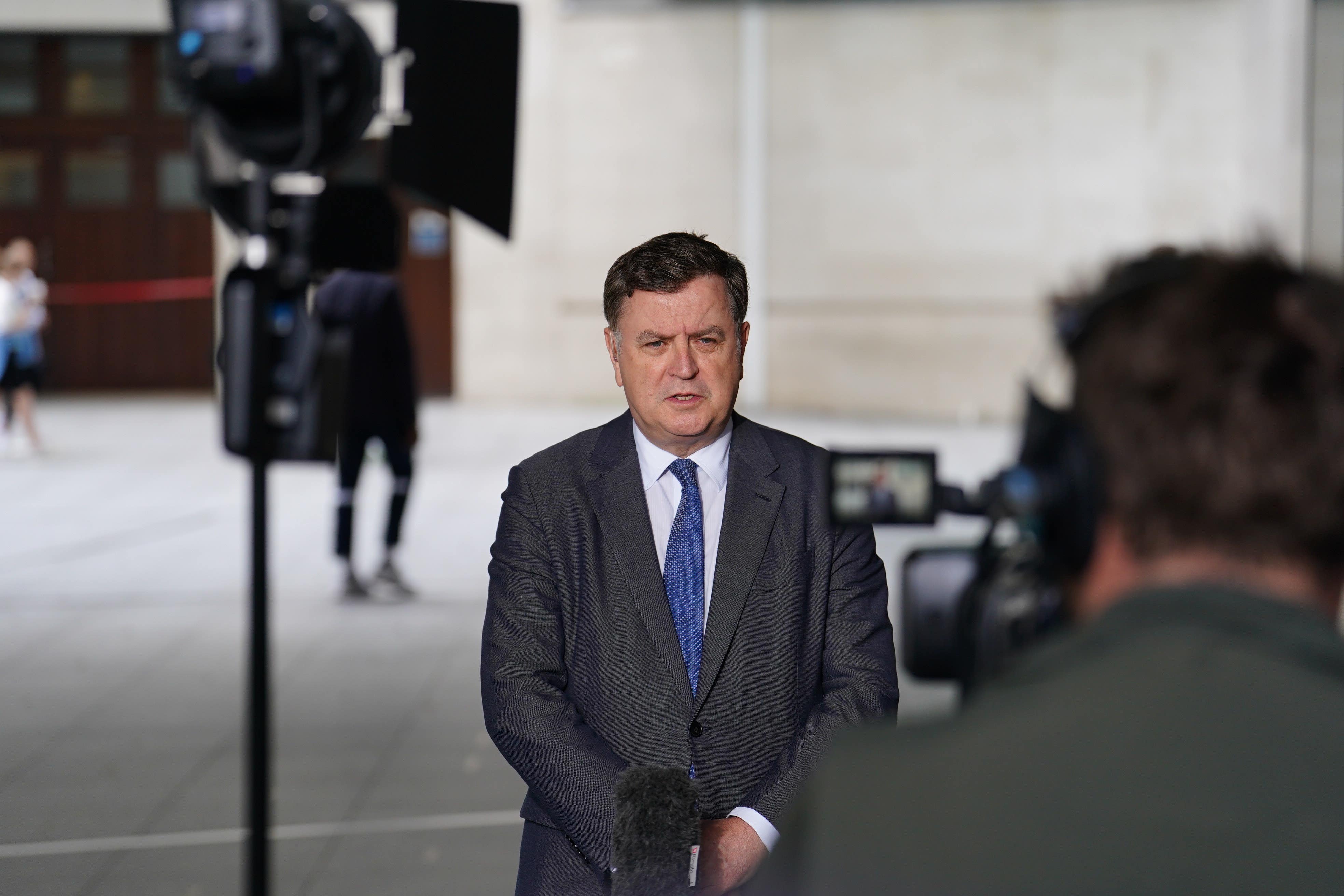
Get the free Morning Headlines email for news from our reporters across the world
Sign up to our free Morning Headlines email
Inflation has fallen back to the 2 per cent target for the first time in nearly three years in a boost for prime minister Rishi Sunak’s faltering election campaign.
The Office for National Statistics figures show the Consumer Prices Index (CPI) dropped to 2 per cent in May, down from 2.3 per cent in April.
The new figure marks the first time inflation has been at the Bank of England’s target since July 2021, before the cost-of-living crisis saw inflation shoot up – at one stage hitting levels not seen for 40 years.

Services price inflation – which, according to the Bank, gives a better picture of medium-term inflation risks – fell 0.2 points to 5.7 per cent, but did not drop as low as the 5.5 per cent expected by economists.
While the pound gained against the US dollar on Wednesday morning, Britain’s FTSE100 and FTSE250 stock indices both fell in value by 0.2 per cent as investors grappled with the lukewarm fall in services price inflation.
But the CPI’s return to 2 per cent is likely to give a pre-election boost to the Conservatives, with Mr Sunak having been quick to declare victory on inflation already last month despite predictions it was expected to fall sharply as rising energy and food costs subside.
Nevertheless, most economists believe the Bank of England will hold interest rates at 5.25 per cent on Thursday, with the election denting hopes of a reduction before the nation head to the polls on July 4.
The Confederation of British Industry (CBI) said the stage was now set for the Bank of England to cautiously cut interest rates the following month.
Hailing a move towards “a more benign inflationary environment”, CBI principal economist Martin Sartorius said: “However, many will still be feeling the pinch due to the level of prices being far higher than in previous years, particularly for food and energy bills.
“Today’s data sets the stage for the Monetary Policy Committee to cut interest rates in August, in line with our latest forecast’s expectations. However, rate-setters will still need to weigh the fall in headline inflation against signs that domestic price pressures, such as elevated pay growth, are proving slower to come down.
“This means that they are likely to move cautiously beyond August to avoid putting further upward pressure on inflation, especially as the growth outlook improves at home and geopolitical tensions remain heightened.”

Speaking as his party languishes in the polls, cabinet minister Mel Stride claimed to Times Radio that the “very significant” inflation news would allow the Tories to “bear down on taxes”.
But he evaded questions about top businesspeople including Phones4U billionaire John Caudwell abandoning the Conservatives for Labour, stressing that inflation “is very good for business, it’s very good for growth, it’s good for people’s living standards”.
Chancellor Jeremy Hunt said: “A year-and-a-half ago, the Bank of England predicted the longest recession in 100 years. Instead, we have had a soft landing with inflation that was higher than nearly any other major economy now lower than nearly all our major competitors. That shows the difficult decisions that we’ve taken have paid off.”
However, Trades Union Congress general secretary Paul Nowak warned the fall in inflation cannot disguise “the worst period for living standards in modern times”, with prices rising more quickly in the past three years than is typical over an entire decade.
Consumer prices have risen by around 20 per cent in Britain over the past three years.
“Ministers can try to rewrite history all they like,” said Mr Nowak, adding: “Food and energy bills have surged. Rents and mortgages have skyrocketed. And real wages are still worth less than in 2008. Working people have paid the price for this government’s failure with household debt also increasing at record levels.”
Suren Thiru, of the Institute of Chartered Accountants, warned that “inflation’s trajectory may get bumpier after the election with the higher National Living Wage and low labour supply likely to increase the upward pressure on prices, even though another fall in energy bills is coming in July”.
He added: “Despite this landmark fall in inflation, concerns over both underlying price pressures and changing policy in the run-up to a general election means a June interest rate cut is almost certainly off the table.”
Mr Sunak said it was “great news” that inflation was now lower than in Germany, France and the United States, claiming that “the economy has now turned a corner” because of his own “bold action” in having “stuck to a clear plan”. He warned voters not to “put all that progress at risk with Labour”.
But shadow chancellor Rachel Reeves said: “After 14 years of economic chaos under the Conservatives, working people are worse off”, adding: “Labour has a plan to make people better off bringing stability back to our economy, unlocking investment and delivering reform.”
This is a breaking news story. More to follow…
Discover more from CaveNews Times
Subscribe to get the latest posts sent to your email.









![[Highlight] Steph Curry hits the step back three and tells the Mavs it’s time to go Night Night!](https://cavemangardens.art/storage/2024/11/174867-highlight-steph-curry-hits-the-step-back-three-and-tells-the-mavs-its-time-to-go-night-night-360x180.jpg)
















![Exploring the Serene Beauty of Nature: A Reflection on [YouTube video title]](https://cavemangardens.art/storage/2024/04/114803-exploring-the-serene-beauty-of-nature-a-reflection-on-youtube-video-title-360x180.jpg)


























